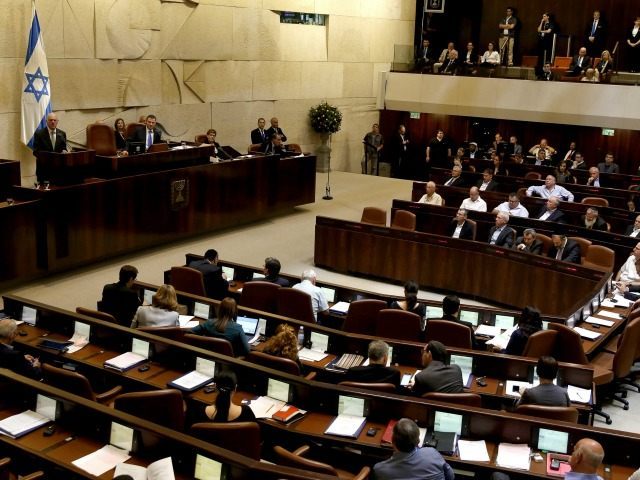TEL AVIV – Forty years after Egyptian leader Anwar Sadat made his historic trip to Jerusalem, Egyptian Ambassador to Israel Hazem Khairat on Tuesday addressed the Knesset and urged Israeli leaders to pursue a framework for peace with the Palestinians based on the Arab Peace Initiative.
“I say to the Israeli side, there is a real opportunity to open a new page with the Arab neighbors, based on co-existence and mutual understanding for a better future leading to peace,” he said at the Knesset event that was attended by Deputy Foreign Minister Tzipi Hotovely and Knesset Speaker Yuli Edelstein.
According to Khairat, the Saudi-led Arab Peace Initiative is a modern incarnation of a peace process started by Sadat 40 years ago.
At a separate event at the President’s Residence, Khairat expounded further.
“We have to underscore that the Arabs still extend their hands in peace, which accordingly entails widening and deepening the scope of our mutual beneficial regional cooperation,” he said at the event, hosted by President Reuven Rivlin, adding that the API “still forms the most serious endeavor and the most appropriate example of what the regional approach should look like.”
However, Prime Minister Benjamin Netanyahu drew a distinction between Sadat and the current Palestinian leadership, lamenting that “Unfortunately, I say, I have not yet to meet a Palestinian Sadat who will declare his desire for conflict to end, recognize the State of Israel with any borders and support our right to live in security and peace.”
Sadat was the first Arab leader to embark on an official visit to Israel, which paved the way for Israeli-Egyptian talks at Camp David a year later. He was eventually assassinated for making peace with the Jewish state.
According to Netanyahu, today “large parts of the Arab world understand not only what happened here forty years ago, they understand very well what can happen here because of the changes taking place in the region.”
“Many countries know that the threat to the Middle East does not stem from Israel, but rather the opposite: Israel is the moderate, responsible and tough factor that is struggling with this threat. The greatest threat in the region stems from radical Islam and violence, led by Iran on the one hand and by ISIS on the other, radical Islam that brutally tramples everything in its path,” the prime minister said.
Netanyahu added that he was “committed to expanding the circle of peace to other countries as well as to our Palestinian neighbors.”
“I know that President [Donald] Trump and his team are also committed to this goal,” he said.
According to Netanyahu, the greatest obstacle to peace is public opinion on the Arab street, which is the result of years of “brainwashing” and “endless propaganda” cultivating a “distorted and misleading presentation of the State of Israel.”
Recalling Sadat’s visit from four decades ago, Netanyahu said he was gripped with “tremendous excitement.”
“Sadat’s arrival, his landing in Israel and then his arrival in the Knesset, was like the excitement I had when I saw the first person landing on the moon,” he added.

COMMENTS
Please let us know if you're having issues with commenting.